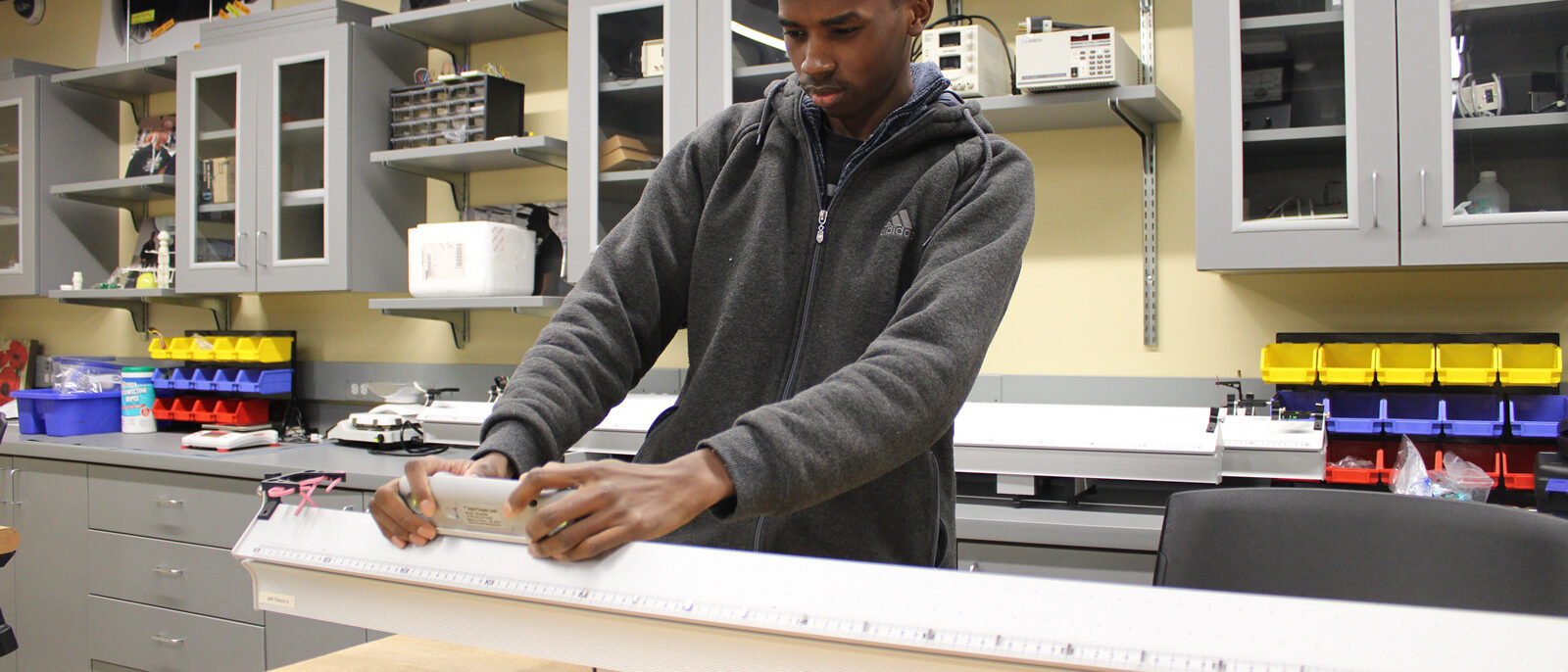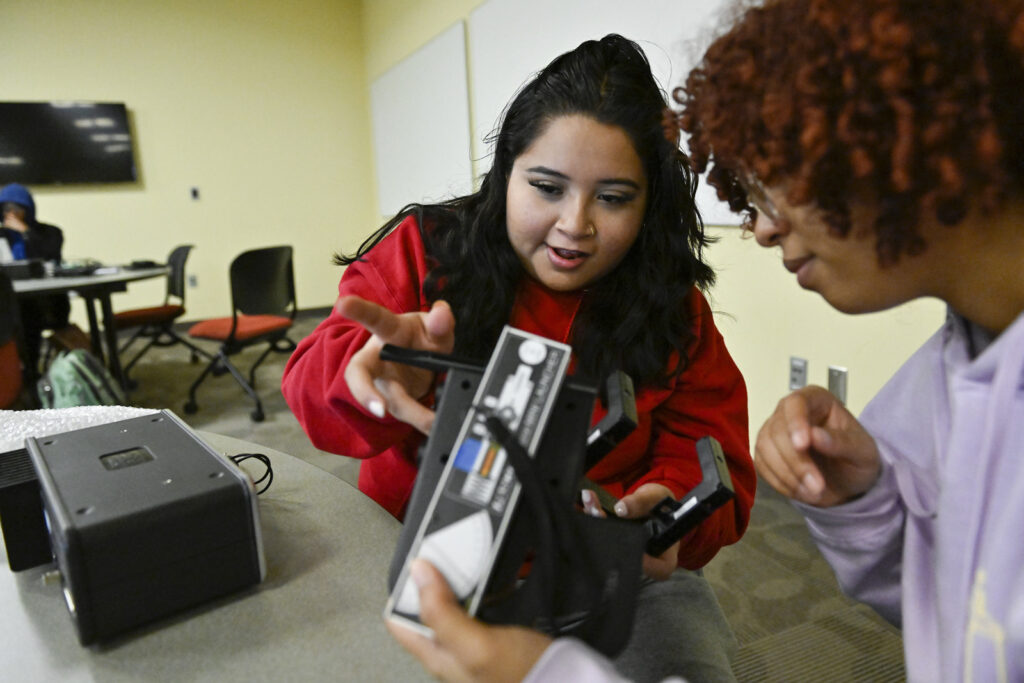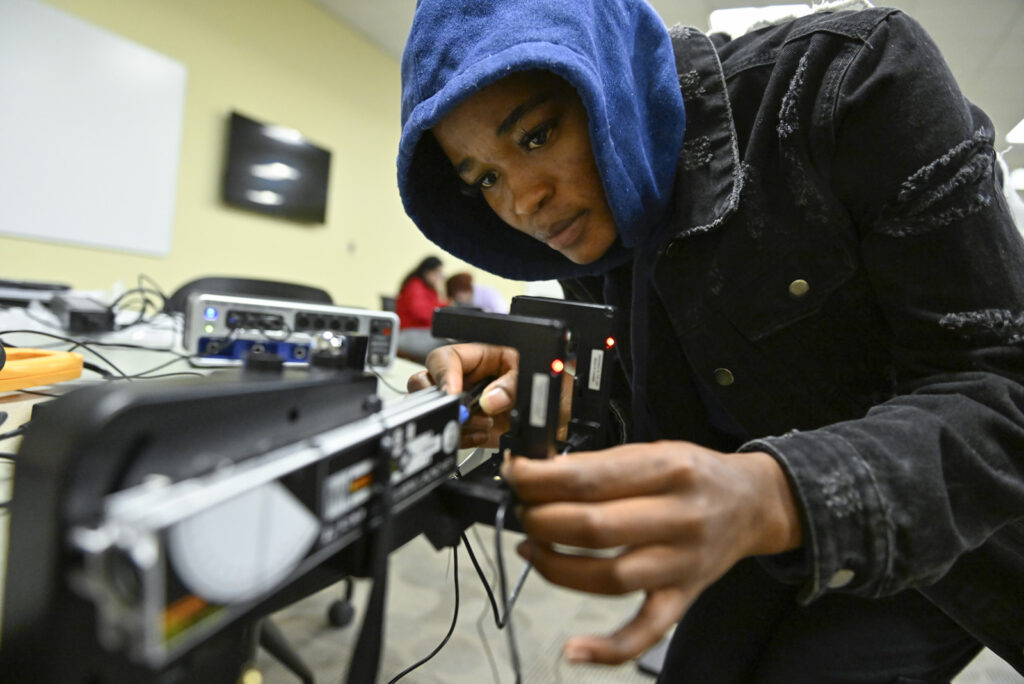
Bachelor of ScienceEngineering and Mathematical Sciences
The Engineering and Mathematical Sciences Bachelor of Science degree program consists of a strong core of courses in applied advanced mathematics, statistics and computational science.
This program consists of a strong core of courses central to general engineering and data analysis with principles in science, applied advanced mathematics, statistics, and computational science. Students in this program will gain strong problem solving and computation skills through project-based learning within a flexible program that is specific to the career aspirations of the individual student. The structure of the program allows the student to choose between two broad areas of study that are, at their root, highly mathematical: (1) data sciences, and (2) engineering sciences.
Program Goals
A graduate of the Engineering and Mathematical Sciences program is prepared to:
- Develop expertise in problem-formation, problem-solving, and modeling techniques and strategies central to a wide variety of applications;
- Establish the ability to communicate analytic arguments clearly and concisely in oral and written forms;
- Exhibit expertise in numerical problem-solving techniques using high-level programming languages and commercial computational software packages; and
- Demonstrate foundational knowledge and skills within an interdisciplinary-work environment.
Program Lead

Akeisha Belgrave, Ph.D. Assistant Professor of Applied Mathematics and Biological Sciences


Program Courses
This program requires a total of 48 semester hours: 1) 24 semester hours from core course listed below and 2) 24 semester hours completed in the Data Sciences or Engineering Sciences Concentrations. The semester hour value of each course appears in parentheses ( ).
Take the Next Step
Get More Information
Questions about our programs? Reach out to a member of our team and get personalized answers.
Apply Now
Create an account and start your free online application to Harrisburg University today.